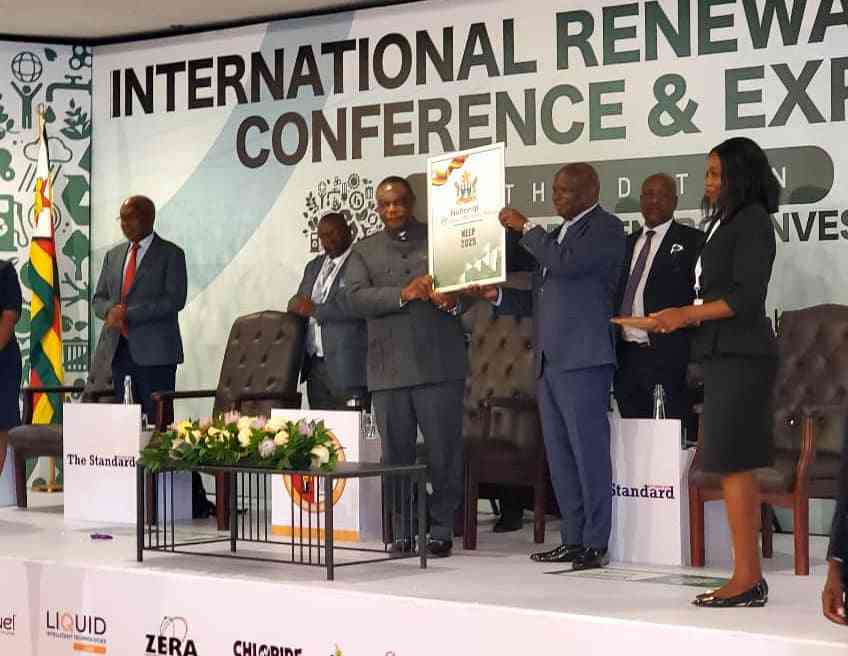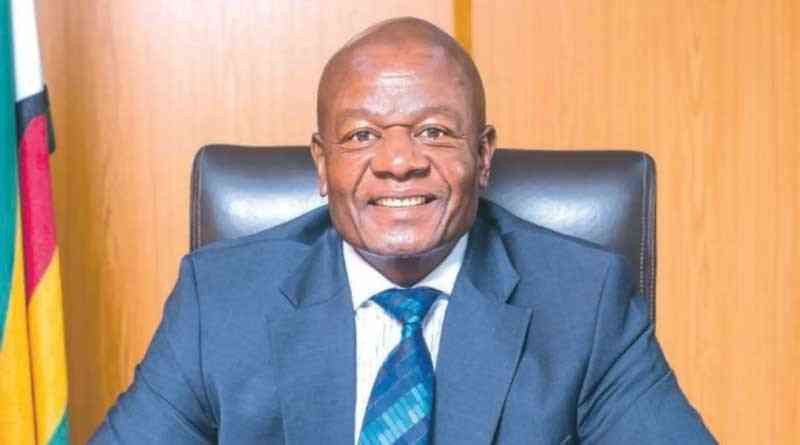
ZIMBABWE has developed various frameworks for seamless integration of renewable energy into the national grid to meet national demand, Vice-President Constantino Chiwenga has said.
Chiwenga said this at the ongoing International Renewable Energy Conference and Expo in Victoria Falls.
The conference was organised by The Standard weekly newspaper in conjunction with the Energy and Power Development ministry.
The Standard is published by Alpha Media Holdings (AMH), who are also the publishers of daily NewsDay and another weekly, Zimbabwe Independent.
AMH also operates the tele-radio station Heart & Soul.
Chiwenga also launched the Renewable Energy Efficiency Policy, which is set to accelerate the broadening of the renewable energy industry in the country.
“We have developed essential frameworks such as the solar industrial plan, the network master plan and the national electrification strategy to ensure the seamless integration of renewable energy into our national grid,” Chiwenga, who was speaking on behalf of President Emmerson Mnangagwa, said.
Mnangagwa is the patron of the conference.
- Masunda lands global sugar industry position
- In Conversation with Trevor: Chisamba: Let’s be proud of ourselves
- Big send-off for Cont Mhlanga
- In Conversation with Trevor : How car crash changed my life
Keep Reading
“This policy aims to optimise the use of existing energy resources, reduce waste and promote sustainable practices across the economy,” Chiwenga said.
“Furthermore, private sector-driven projects such as captive power plants are already underway and are expected to significantly reduce load shedding in the near future, contributing to a more reliable energy supply for all Zimbabweans.”
He noted that the government is dedicated to addressing the challenges being faced by the energy sector.
“The government has implemented key policy frameworks, such as the Energy Efficiency Policy and the Renewable Energy Policy, designed to promote a cleaner and more resilient energy sector,” he said.
“We are working to address challenges related to post-competitiveness, policy uncertainty and infrastructure development, which are critical to achieving a just and equitable energy transition.”
He called for collective action among energy sector players to pool resources together to enhance regional energy security.
He said the country’s target was to achieve 2 100 megawatts of installed renewable energy capacity by 2030.
“This goal aligns with Sustainable Development Goal 7, which seeks to ensure universal access to affordable, reliable, and sustainable energy,” Chiwenga said.
“These efforts not only serve as a model for other nations in the region, but also position Zimbabwe as a regional leader in renewable energy development.”
He urged the private sector to join forces with government and international players to fund the renewable energy industry with emphasis on storage technology.
Chiwenga said green energy storage technologies were the next frontier in guaranteeing reliable power.
“We actively encourage the private sector, financial institutions and international partners to invest in our energy sector,” he said.
“Through collaborations and innovation, we can unlock the financial capital needed to develop our plants and infrastructure that will benefit the private sector in our communities.”
“Zimbabwe is dedicated to removing barriers to doing business and fostering partnerships that result in sustainable, clean and affordable energy for all.”
Chiwenga emphasised the need to ensure the availability of power storage facilities.
“This is a critical area that we want to see the private sector, the financiers and all stakeholders taking a keen interest in,” he said.
“Zimbabwe is fully committed to these targets, which align with our national strategy of transitioning to sustainable energy systems.
“Critical sectors such as mining, agriculture and manufacturing require constant electric energy supply for operational stability.”
“Therefore, investing in renewable energy such as solar, wind and hydropower will not only ensure a stable energy supply, but also foster economic productivity and competitiveness, as well as reduce reliance on conventional energy supply sources.”
He said the national electricity access rate stood at 62%, with the rural areas experiencing access levels as low as 20%.
Chiwenga said the disparity presented both a significant challenge and an opportunity for rapid improvement.
“The government has already embarked on several transformative renewable energy projects, including large-scale solar farms and wind energy initiatives.
The conference ends tomorrow.










